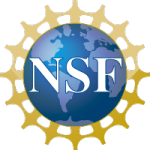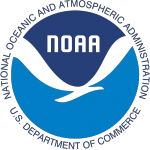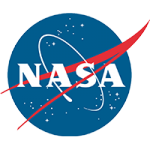The 2012 OCB Summer Science Workshop was held July 16-19, 2012 at the Woods Hole Oceanographic Institution Quissett Campus, Clark 507, in Woods Hole, MA.
1. Plenary Sessions
Multiple stressors in marine ecosystems
Chair: Cindy Lee, Stony Brook Univ.
Marine ecosystems are facing multiple anthropogenic stressors, and although we are learning much about how individual stressors may impact ecosystems, we know little about synergistic effects. Speakers in this session will highlight theoretical or experimental approaches to predicting interactions among multiple changing factors that affect marine ecosystems and biogeochemical processes, including temperature, eutrophication, stratification, acidification, hypoxia, etc. Confirmed speakers for this session include Jorge Sarmiento (Princeton Univ.), Lisa Levin (Scripps Inst. of Oceanography), Wei-Jun Cai (Univ. of Georgia), and Nicolas Gruber (ETH Zurich).
Ocean biogeochemistry from satellite data
(Chair: David Siegel, Univ. of California, Santa Barbara)
Satellite ocean color data represent a critical observational resource in support of OCB research. Planning for the next NASA ocean color research mission PACE (Pre-Aerosol, Clouds, and ocean Ecosystem, http://decadal.gsfc.nasa.gov/PACE.html) is currently underway, with an anticipated 2019 launch. This session will open with a tutorial on satellite ocean color remote sensing, followed by plenary talks on PACE science objectives, science definition, and plans forward. The session will conclude with a panel discussion and an opportunity to provide community input to PACE planning. Confirmed speakers for this session include David Siegel (Univ. of California, Santa Barbara), Michael Behrenfeld (Oregon State Univ.), and Carlos Del Castillo (Johns Hopkins Univ.).
Land-ocean transport and linkages with global change
Chair: Thomas S. Bianchi, Texas A&M Univ.
Approximately 87% of Earth’s land surface is connected to the ocean by rivers. Over the past 50 years, increases in the human population have had severe global impacts on large-river systems through enhanced fertilizer usage, damming, deforestation, and many other land-use changes. Speakers in this session will describe processes and quantify key fluxes across the land-ocean continuum, including river transport, plume dynamics, and continental margin sediments, and explore impacts of recent land-use changes. Confirmed speakers for this session include Valier Galy (Woods Hole Oceanographic Inst.), Steven Lohrenz (Univ. of Massachusetts, Dartmouth), Neal Blair (Northwestern Univ.), and Peter Raymond (Yale Univ.).
Integrating measurements across multiple time and space scales
Chair: Craig Carlson, Univ. of California, Santa Barbara
Long-term biogeochemical studies conducted over decades at single locations (i.e. Ocean station Papa, HOT, BATS, CARIACO) or across large regional areas (i.e. CalCOFI / CCE-LTER) allow researchers to integrate and synthesize data over multiple temporal and spatial scales. In this session, presenters will draw upon decades of data to describe emerging biogeochemical patterns from these various types of time-series programs. Biogeochemical models are integral in the synthesis of these vast data sets. An overview of these modeling efforts and outputs will be included. Finally, there will be a presentation describing an international effort to quantify the regional carbon fluxes from a combination empirical and model output. Confirmed speakers for this session include Steve Emerson (Univ. of Washington), Mark Ohman (Scripps Inst. of Oceanography), Katja Fennel (Dalhousie Univ.), and Galen McKinley (Univ. of Wisconsin, Madison).
New observations from an Arctic Ocean in rapid transition
Chair: Jeremy Mathis, Univ. of Alaska, Fairbanks
The Arctic is undergoing rapid changes in response to warming, accelerated melting of large ice sheets, and reductions in seasonal sea ice cover. This session will include an overview of recent findings from ICESCAPE (Impacts of Climate change on the Eco-Systems and Chemistry of the Arctic Pacific Environment), a 2010-2011 NASA shipborne field campaign in the Beaufort and Chukchi Seas that is exploring the implications of these changes for marine ecosystems and associated physical and biogeochemical processes. In addition to the Pacific sector, one of the plenary speakers will address carbon cycling in the Atlantic sector of the Arctic. The session will also include an introduction to the NASA Terrestrial Ecology Program’s proposed Arctic field campaign ABoVE (Arctic-Boreal Vulnerability Experiment), with ample time for OCB community input and discussion. Additional content for this session is still under development, so please check back soon. So far, confirmed speakers for this session include Jeremy Mathis (Univ. of Alaska, Fairbanks), Leif Anderson (Univ. of Gothenburg), and Peter Griffith (NASA GSFC).
2. Agenda with Talks and Webcast Footage
Monday July 16, 2012
8:30 Introduction and announcements (Benway/Doney, Woods Hole Oceanographic Inst.)
Session 1. Multiple Stressors in Marine Ecosystems
Chair: Cindy Lee (Stony Brook Univ.)
8:40 Impact of multiple stressors on fisheries (Jorge Sarmiento, Princeton Univ.) (Recording: Quicktime, webm)
9:20 Multiple stressors on upwelling margins: Untangling biological effects of hypoxia, hypercapnia and temperature (Lisa Levin, Scripps Inst. of Oceanography) (Recording: Quicktime, webm)
10:30 Multiple stressors in coastal ocean environments – rethinking the impact of ocean acidification (Wei-Jun Cai, Univ. of Georgia) (Recording: Quicktime, webm)
11:10 Multiple stressors in eastern boundary upwelling regions (Nicolas Gruber, ETH Zurich) (Recording: Quicktime, webm)
11:50 Recent developments and forthcoming international activities in the study of multiple stressors (Philip Boyd, NIWA, Univ. of Otago) (Recording: Quicktime, webm)
12:00 Panel discussion (Recording: Quicktime, webm)
Session 2. Ocean biogeochemistry from satellite data
Chair: David Siegel (Univ. of California, Santa Barbara)
14:00 A tutorial on satellite ocean color remote sensing (David Siegel, Univ. of California, Santa Barbara) Video not available.
14:45 Science goals and objectives from the NASA PACE (Pre-Aerosol, Clouds, and ocean Ecosystem) Science Definition Team report (Michael Behrenfeld, Oregon State Univ.) Video not available.
16:00 NASA PACE Science Definition Team report approach and recommendations (Carlos Del Castillo, Johns Hopkins Univ.) (Recording: Quicktime, webm)
16:45 Panel discussion and community input to PACE (Recording: Quicktime, webm)
17:15-19:30 Poster session and reception (Clark 2 foyer)
Tuesday July 17, 2012
8:45 GEOTRACES: Highlights of recent scientific findings (William Jenkins, Woods Hole Oceanographic Inst.) (Recording: Quicktime, webm)
Robert F. Anderson, Lamont-Doherty Earth Observatory (Recording: Quicktime, webm)
9:30 Student 2-minute presentations (Recording: Quicktime, webm)
11:00 A pilot program to characterize the geography and impact of microbial biomes (Jim Moffett, Univ. of Southern California) (Recording: Quicktime, webm)
11:30 Questions and discussion (Recording: Quicktime, webm)
12:30 GROUP 1. BCO-DMO hands-on tutorial (Cyndy Chandler, Woods Hole Oceanographic Inst.) Part 1 Part 2
Session 3. Land-ocean transport and linkages with global change
Chair: Thomas S. Bianchi (Texas A&M Univ.)
13:30 River transport and fluxes – freshwater, carbon, nutrients, etc. (Valier Galy, Woods Hole Oceanographic Inst.) Video not available.
14:10 River plume processes and dynamics (Steve Lohrenz, Univ. of Massachusetts, Dartmouth) Video not available.
14:50 The benthic processing of terrestrial organic matter on river-dominated margins (Neal Blair, Northwestern Univ.) Video not available.
16:00 Anthropogenic alteration of dissolved inorganic carbon fluxes from watersheds (Peter Raymond, Yale University) (Recording: Quicktime, webm)
16:40 Questions and discussion (Recording: Quicktime, webm)
16:30 Special event for students and postdocs: Program Managers Research Funding Panel
17:10 Poster session
17:30-18:30 GROUP 2. BCO-DMO hands-on tutorial (Cyndy Chandler, Woods Hole Oceanographic Inst.) – Group Training Facility, Clark 141
Wednesday July 18, 2012
Session 4. Integrating measurements across multiple time and space scales
Chair: Craig Carlson (Univ. of California, Santa Barbara)
8:30 Recent and upcoming U.S. and international time-series activities(Craig Carlson, Univ. of California, Santa Barbara) (Recording: Quicktime, webm)
8:45 Ocean Station Papa time-series (Steve Emerson, Univ. of Washington) (Recording: Quicktime, webm)
9:25 California Current Ecosystem Dynamics: A multi-scale perspective (Mark Ohman, Scripps Inst. of Oceanography) (Recording: Quicktime, webm)
10:05 Patterns of phytoplankton limitation and hypoxia in the northern Gulf of Mexico: Observations, simulations and predictability(Katja Fennel, Dalhousie Univ.) (Recording: Quicktime, webm)
11:15 The REgional Carbon Cycle Assessment and Processes (RECCAP) effort (Galen McKinley, Univ. of Wisconsin, Madison) (Recording: Quicktime, webm)
11:55 Questions and discussion (Recording: Quicktime, webm)
13:00 GROUP 3. BCO-DMO hands-on tutorial (Cyndy Chandler, Woods Hole Oceanographic Inst.)
Session 5. New observations from an Arctic Ocean in rapid transition
Chair: Jeremy Mathis (Univ. of Alaska, Fairbanks)
14:00 ICESCAPE (Impacts of Climate change on the Eco-Systems and Chemistry of the Arctic Pacific Environment): Overview of scientific findings (Jeremy Mathis, Univ. of Alaska, Fairbanks) (Recording: Quicktime, webm)
14:40 Transformation and fluxes of carbon in a changing Arctic Ocean and it’s impact on ocean acidification, the Atlantic view (Leif Anderson, Univ. of Gothenburg) (Recording: Quicktime, webm)
15:20 Questions and discussion
16:00 NASA Terrestrial Ecology Program’s proposed Arctic field campaign: the Arctic-Boreal Vulnerability Experiment (ABoVE) (Peter Griffith, NASA GSFC) (Recording: Quicktime, webm)
Accompanying informational ABoVE executive summary document
16:15 Community discussion and feedback on ABoVE (Recording: Quicktime, webm)
16:30 Poster session (Clark 2 foyer)
18:00-21:00 Workshop dinner (Fenno lawn, under the tent)
Thursday July 19, 2012
8:30 Agency updates
- NOAA (Dwight Gledhill) – NOAA update and report on International Ocean Acidification Observing Network workshop (June 2012, Seattle, WA) (Recording: Quicktime, webm)
- NSF (David Garrison, Donald Rice) (Recording: Quicktime, webm)
- NSF (Baris M. Uz) (Recording: Quicktime, webm)
- NASA (Paula Bontempi) (Recording: Quicktime, webm)
10:30 Revised North American Coastal Carbon Budgets: An Update on the NACP/OCB Coastal Synthesis Activity (Marjorie Friedrichs, Virginia Institute of Marine Science, given by Wei-Jun Cai, Univ. of Georgia)
11:00 A U.S. Carbon Cycle Science Plan for the next decade: Where do we go from here? (Community discussion moderated by Kendra Daly, Univ. of South Florida) (Recording: Quicktime, webm)
13:00 OCB Scientific Steering Committee (SSC) meeting, Clark 271 (OCB SSC members and agency representatives only)
3. Poster Information
Poster Sessions
- Multiple stressors in marine ecosystems
- Ocean biogeochemistry from satellite data
- Land-ocean transport and linkages with global change
- Integrating measurements across multiple time and space scales
- New observations from an Arctic Ocean in rapid transition
2012 OCB Workshop Full Poster Abstracts
2012 OCB Workshop Abbreviated Poster List
4. Participant Information
2012 OCB Workshop Participant List
2012 Workshop Sponsors






